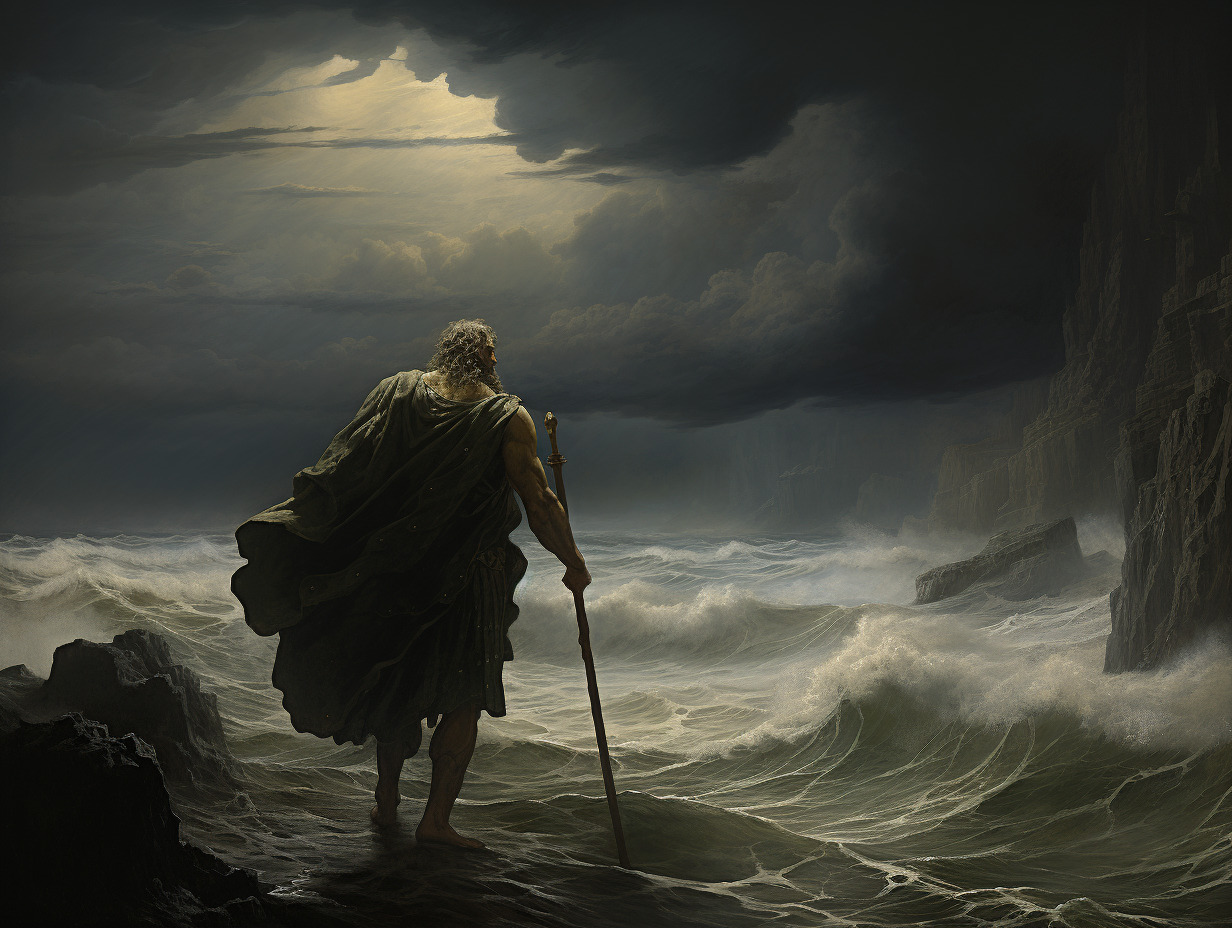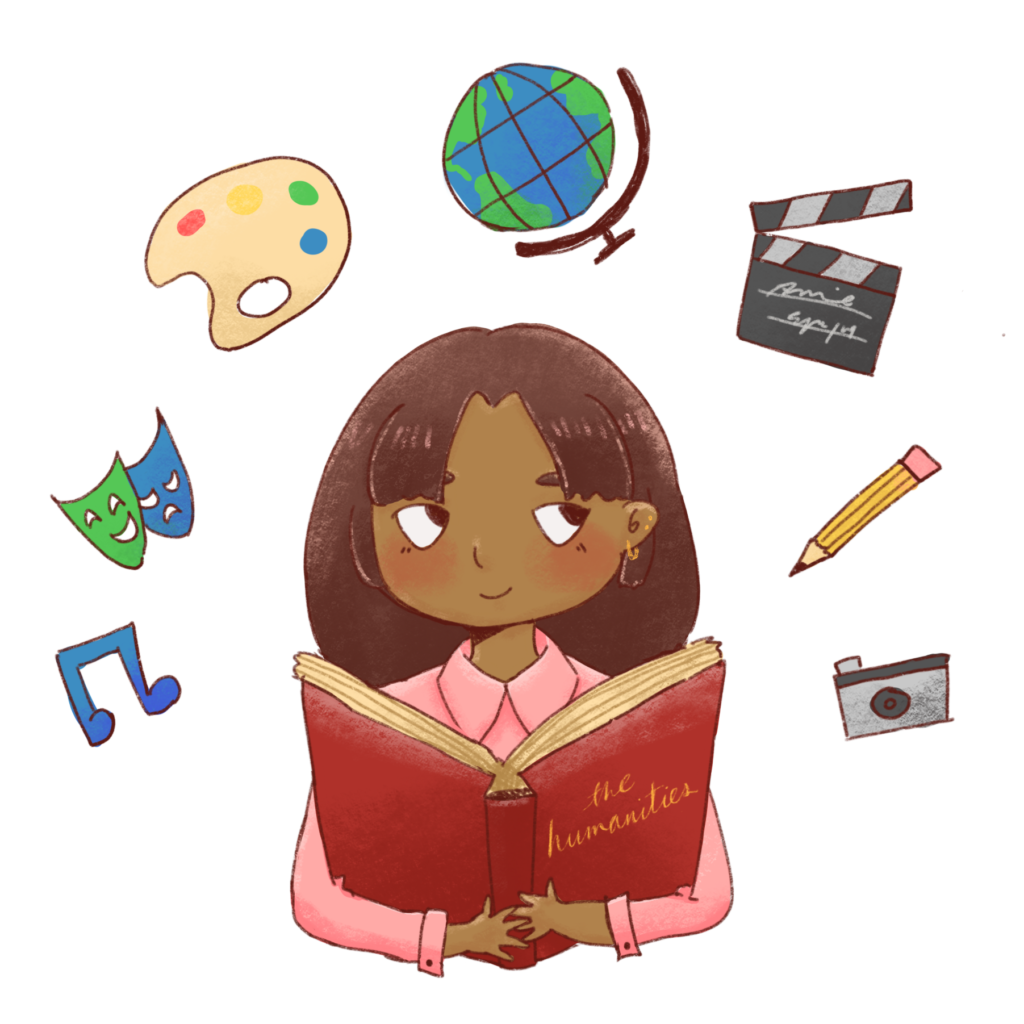The “Odyssey,” attributed to the ancient Greek poet Homer, is a literary masterpiece that has enthralled audiences for nearly three millennia. This epic poem chronicles the harrowing journey of Odysseus, the clever and often troubled hero, as he navigates a landscape filled with mythical beings and profound trials. Recent adaptations, including a new translation by Daniel Mendelsohn and an A.R.T. production, illustrate the cultural significance of the “Odyssey” and keep its timeless allure alive. As discussions about the character of Odysseus unfold, we explore the multifaceted nature of his persona, reflecting the complexities of human experience that resonate with readers across generations. Through its rich narratives and thematic depth, the “Odyssey” remains a cornerstone of epic poetry, inviting contemplation and discovery.
Homer’s famed work, often referred to as the “Iliad and Odyssey,” encapsulates the essence of epic storytelling. This ancient tale unfolds the adventures of a legendary figure, Odysseus, throughout a world filled with gods, monsters, and moral dilemmas. Modern interpretations and translations of this classic not only highlight the protagonist’s cunning nature but also explore the broader, universal themes of struggle and resilience. The artistic expression found within the “Odyssey” underscores its everlasting relevance in today’s cultural landscape, making it a pivotal piece in the study of literature and human behavior. By examining alternative translations and perspectives, we can appreciate the varied dimensions of this timeless narrative.
The Enduring Legacy of Homer’s Odyssey
Homer’s “Odyssey” has transcended the bounds of time to become a cornerstone of Western literature. With its composition dating back nearly 3,000 years, the epic poem still resonates with modern audiences, illustrating themes of adventure, loyalty, and human endurance. This legacy is particularly evident through its numerous adaptations and translations, which keep the rich narrative and complex characters alive. The story of Odysseus, with his trials and eventual homecoming, mirrors the universal journey that many strive for in their own lives. Such cultural significance has led to countless discussions in literature circles, examining the relevance of Homeric themes in contemporary society.
The appeal of the “Odyssey” is not confined to literature; it has also become a subject of exploration in cinema and theater. Recent adaptations, like the American Repertory Theater’s production and Christopher Nolan’s upcoming film, showcase how this ancient text can still inspire modern storytelling methods. This ongoing interest lays testament to the epic’s foundational role in establishing concepts such as heroism and identity in narrative forms, influencing various storytelling conventions across cultures.
Odysseus: The Trickster Hero of Epic Poetry
Odysseus, the protagonist of the “Odyssey,” embodies the archetype of the trickster hero, a character who defies social norms and expectations. Unlike typical heroes, he is deeply flawed yet undeniably charismatic, navigating challenges with wit and cunning. This complexity in his character makes him an enduring figure in epic poetry—a beacon for discussions surrounding morality, power, and human nature. As scholars delve into Odysseus’s multifaceted persona, they uncover the layers of his character, revealing insights into the human experience. His journey is not merely one of physical travel, but a reflection of the internal struggles that everyone faces.
The journey of Odysseus serves as an allegory for the quest for self-discovery and personal growth, making him relatable to audiences across generations. His ability to adapt and survive against all odds resonates with readers who see fragments of their journeys within his trials. The unique characteristics of Odysseus—his cleverness, versatility, and at times, his rage—illustrate the dimensions of heroism that speak to the more profound aspects of the human condition, sparking analysis and admiration for his character in both classical studies and modern interpretations.
Exploring Translations of the Odyssey
The multitude of translations of the “Odyssey” speaks volumes about its impact and importance in literary history. Each translation not only seeks to maintain the essence of the original Greek text but also strives to reflect contemporary language, culture, and sensibilities. Celebrated translators like Emily Wilson and Richmond Lattimore bring their interpretations to life, offering unique perspectives on Homer’s narrative. The profound act of translation allows new generations to engage with the epic, ensuring that Odysseus’s adventures remain accessible and relevant.
Furthermore, the evolution of translations illustrates the changing literary styles and societal values over the centuries. Chapman’s early 17th-century version offered the first complete English rendering, while modern translations provide a fresh lens on the text, enhancing its pacing and emotional depth. Each distinct interpretation sparks dialogue among readers and scholars, enriching the understanding of Homer’s work and its thematic nuances. Through these translations, the “Odyssey” continues to be a vibrant subject of study, revealing timeless truths and inspiring new audiences.
Cultural Significance of the Odyssey
The cultural significance of the “Odyssey” extends beyond literature and into the very fabric of Western civilization. As one of the earliest examples of storytelling, it lays the groundwork for the tropes and themes that dominate countless narratives in art, theater, and film today. The epic’s exploration of identity, fidelity, and the overarching quest for knowledge reflects core human experiences, prompting readers to engage with these enduring questions. Across centuries, cultures have drawn inspiration from Odyssean themes to articulate their values and experiences, embedding Homer’s work into the global cultural consciousness.
In educational contexts, the “Odyssey” remains a fundamental text in curricula across the globe, serving as a gateway into classical literature and epic poetry. Its teachings on courage, resilience, and the human spirit encourage critical discourse about societal values and personal ethics. As students and scholars analyze its narrative structure, character arcs, and philosophical reflections, the epic continuously reinvents itself, showcasing its dynamic relevance across cultural landscapes. The “Odyssey” not only enriches our understanding of ancient Greece but also continues to influence modern thought and creativity.
The Role of Penelope in the Odyssey’s Narrative
Penelope stands out as one of the most intriguing characters within the “Odyssey,” embodying fidelity and intelligence amidst adversity. Her ability to remain steadfast while Odysseus embarks on his perilous journey speaks to her strength and resilience. As the archetypal faithful spouse, her character enriches the narrative, bringing depth to the themes of loyalty and hope. Penelope’s cleverness is showcased through her famous ruse of weaving and unweaving the same tapestry, a symbolic act that speaks both to her ingenuity and her situation’s complexity.
Additionally, Penelope’s role challenges conventional views of female characters in epic poetry. Instead of being merely a passive figure waiting for her husband’s return, she actively engages with suitors and navigates the intricacies of her social obligations. This portrayal invites readers to explore themes of agency and empowerment within the epic, prompting discussions about gender roles both in ancient times and contemporary society. Penelope’s character illustrates that the story of the “Odyssey” is as much about her journey as it is about Odysseus, expanding our understanding of heroism and struggle.
The Journey of the Soul in the Odyssey
At its core, the “Odyssey” is emblematic of the journey of the soul—a narrative that encapsulates the quest for identity, purpose, and belonging. Odysseus’s odyssey is not merely a physical journey across the seas but a profound exploration of his essence and values. The challenges he faces serve as metaphors for personal growth, highlighting the necessity of both triumphs and setbacks in achieving self-discovery. The trials he undergoes, from encounters with mythical creatures to his struggles against temptation, reflect the inner conflicts many face in their pursuit of meaning.
Engaging with the “Odyssey” invites readers to embark on their personal journeys of introspection and reflection. The themes of homecoming and reconciliation resonate universally, prompting audiences to consider their own paths and the lessons gleaned from their experiences. As modern readers traverse the landscape of Odysseus’s adventures, they may find echoes of their challenges and aspirations, underlining the eternal relevance of Homer’s work. Ultimately, the epic serves not just as a tale of adventure, but as a guide for navigating the complexities of the human spirit.
Modern Interpretations of the Odyssey
The “Odyssey” continues to inspire innovative interpretations that breathe new life into Homer’s timeless narrative. With contemporary adaptations ranging from theatrical productions to cinematic interpretations, the essence of the epic is reimagined for modern audiences. Each retelling offers unique insights and engages with current themes such as identity, globalization, and the human experience. This desire to reinterpret the poem showcases its adaptability and relevance in today’s rapidly changing world.
Furthermore, scholars and creators delve into the depths of Homer’s text, unearthing contemporary parallels that resonate with audiences today. As discussions surrounding its themes of displacement, courage, and moral complexity intensify, the epic remains a canvas onto which various cultures and societies project their values and narratives. The ongoing exploration of the “Odyssey” not only reflects its impact but also reaffirms the importance of classical texts in understanding our current milieu, proving that the journey of Odysseus continues to echo through time.
The Artistic Influence of the Odyssey
The artistic influence of the “Odyssey” has left an indelible mark on various art forms, from visual arts to theater, shaping how stories are told and experienced. Artists across generations have drawn inspiration from its vivid imagery and thematic depth, translating the complexities of Odysseus’s journey into captivating works. The epic’s rich narrative allows for multiple interpretations, inviting artists to explore its motifs and characters through their unique perspectives, thereby continually reinvigorating the story.
Additionally, the “Odyssey” serves as a cultural touchstone in the realm of visual art, with depictions of iconic scenes influencing countless painters, sculptors, and illustrators. These artistic representations not only celebrate Homer’s work but also contribute to an ongoing dialogue about the significance of storytelling and the human condition. As audiences engage with these diverse forms of creativity, the “Odyssey” remains a powerful source of inspiration, bridging the gap between ancient literature and modern artistic expression.
The Role of the Muse in Understanding the Odyssey
In the opening lines of the “Odyssey,” Homer invokes the Muse, a crucial element that highlights the importance of inspiration and creativity in storytelling. The Muse represents the divine source of artistic vision, suggesting that the narrative transcends mere entertainment to embody a deeper exploration of human emotion and experience. This invocation serves as a reminder of the profound connection between human endeavors and the pursuit of knowledge, urging readers to seek inspiration in their lives and journeys.
The Muse’s presence underlines a key aspect of the “Odyssey”—the idea that art and storytelling are deeply intertwined with the human experience. The characters’ journeys are not simply plots but avenues for personal reflection and emotional exploration. As readers engage with the poem, they are inspired not only by the adventures of Odysseus but also by the creative process itself, promoting a greater appreciation for the art of storytelling and its capacity to reflect our own lives. As such, the role of the Muse is central to understanding the “Odyssey” not only as a literary work but also as a timeless homage to the creative spirit.
Frequently Asked Questions
What is the historical significance of Homer in relation to the ‘Odyssey’?
Homer is a legendary figure who is credited with composing epic poetry like the ‘Odyssey’, which originates in ancient Greece around the late eighth and early seventh centuries B.C.E. His works reflect the cultural context of coastal Asia Minor and the classic traditions of storytelling that shaped Western literature.
Why has the ‘Odyssey’ been translated over 100 times?
The ‘Odyssey’ has been translated over 100 times due to its profound literary value and its exploration of universal themes, such as the hero’s journey. Different translators bring unique perspectives, making the epic accessible to diverse audiences while preserving its cultural significance.
What makes Odysseus a compelling character in the ‘Odyssey’?
Odysseus is fascinating due to his complex nature as a trickster hero. He displays cleverness, moral ambiguity, and resilience throughout his journey, navigating challenges that reveal societal norms, thus captivating readers for centuries.
How has modern art influenced the perception of the ‘Odyssey’?
Modern adaptations, such as stage plays and films, have reintroduced the ‘Odyssey’ to contemporary audiences, illustrating its timeless appeal. Recent translations, like Daniel Mendelsohn’s, offer fresh interpretations, enhancing the epic’s relevance in today’s cultural landscape.
What are some popular translations of the ‘Odyssey’?
Notable translations of the ‘Odyssey’ include George Chapman’s 1616 English version, Emily Wilson’s acclaimed 2017 translation, and those by Richmond Lattimore and Robert Fagles. Each translation brings unique stylistic elements, enriching the reader’s understanding of Homeric poetry.
What themes are central to the ‘Odyssey’ as an epic poem?
The ‘Odyssey’ explores themes such as the journey of the soul, the concept of home, identity, and the nature of heroism. These elements resonate deeply within the context of epic poetry, making it a cornerstone of Western literary tradition.
What is the cultural significance of the ‘Odyssey’ in today’s society?
The ‘Odyssey’ continues to hold cultural significance as it examines the human experience through the lens of adventure and moral dilemmas. Its themes of perseverance, loyalty, and the quest for knowledge remain relevant, inspiring various forms of artistic expression and educational discussions.
How does Penelope’s character in the ‘Odyssey’ compare to Odysseus’s?
In the ‘Odyssey’, Penelope is portrayed as a highly intelligent and resourceful character, often considered equally or more insightful than Odysseus. Her cleverness in dealing with suitors while waiting for her husband underscores the depth of female agency within the epic’s narrative.
| Key Elements | Details |
|---|---|
| Enduring Appeal of The Odyssey | The epic poem has captivated audiences for nearly 3,000 years. |
| Recent Adaptations | A new production at the American Repertory Theater and an upcoming film by Christopher Nolan highlight its continued relevance. |
| Translation | Daniel Mendelsohn’s new translation is set for release next month, adding to the over 100 existing translations. |
| Greg Nagy’s Insights | Classicist Greg Nagy remarks on Odysseus as a complex hero and shares his favorite translations, emphasizing the poem’s depth. |
| Cultural Significance | Engagement with The Odyssey sparks personal journeys in readers, revealing the timeless nature of its themes. |
Summary
Odyssey remains a timeless narrative that continues to resonate deeply with audiences. This enduring classic explores themes of heroism, identity, and the complexity of human experience through its rich characters and intricate storytelling. As new translations and adaptations emerge, such as those by Daniel Mendelsohn and Christopher Nolan’s interpretation, The Odyssey’s exploration of a “journey of the soul” invites readers to reflect on their own life journeys. The legacy of Homer’s work persists, proving that the call to adventure is as relevant today as it was thousands of years ago.



